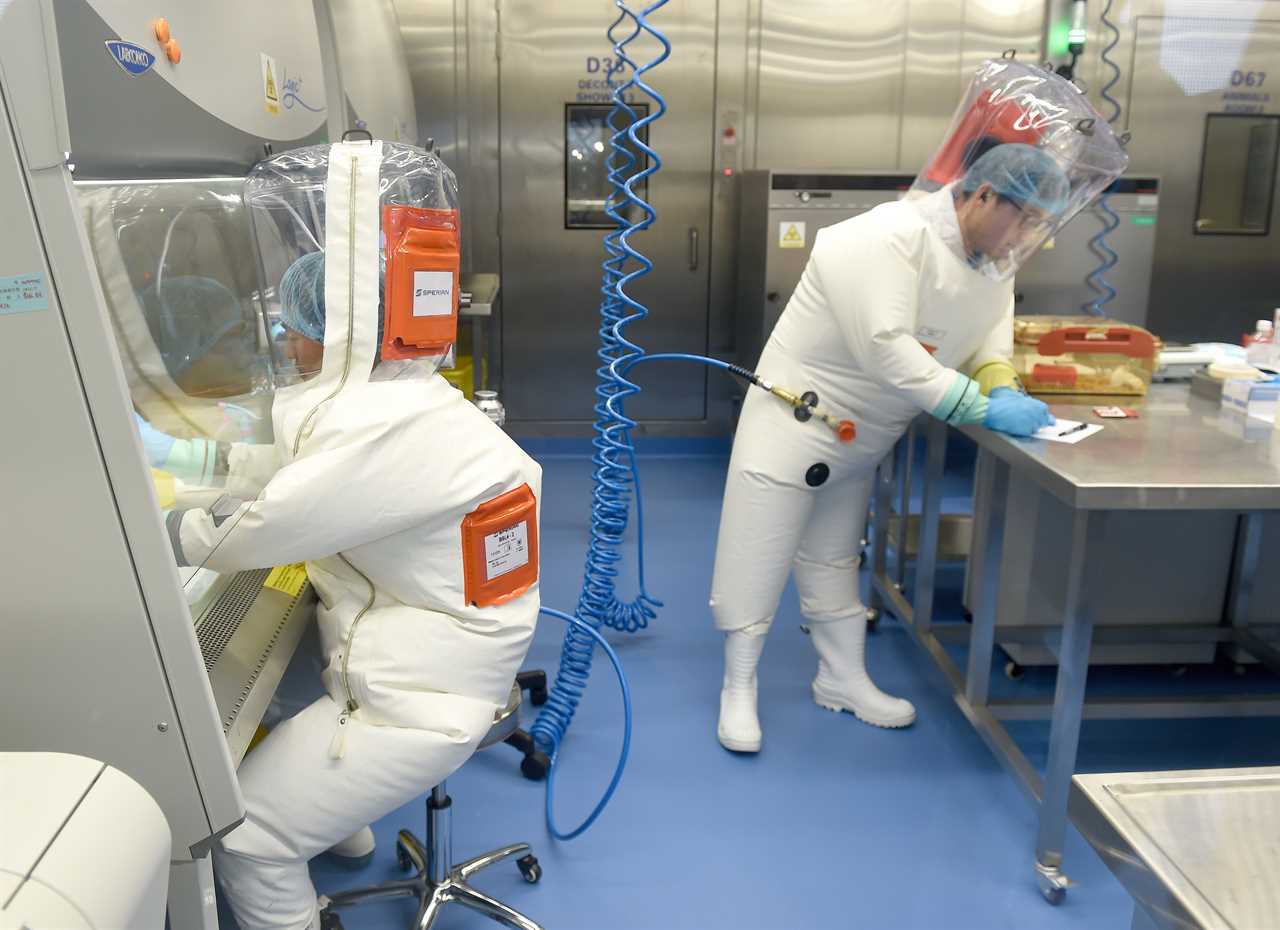COVID was “ready made” to infect humans when the virus first emerged in Wuhan and this adds to the mounting evidence of a lab leak, a new bombshell book has claimed.
Elaine Dewar, a Canadian investigative journalist and science writer, told Trending In The News Online the “biggest red flag” is the fact the virus was “perfectly adapted to human beings” when it first appeared in December 2019.



The theory that the pandemic was caused by a lab leak in Wuhan has become increasingly mainstream in recent months despite being slammed as a conspiracy theory in the initial months of the outbreak.
The Wuhan Institute of Virology – a high security bio lab specalising in coronaviruses – has been in the eye of the storm as questions rage whether Covid could have escaped from its campus.
Both China and the lab have furiously denied any allegations, but fresh evidence indicates the virus was circulating in human cells “for a very long time”.
The bombshell testimony suggests the scientists were experimenting by injecting coronaviruses into human cells and had created a deadly pathogen which accidentally leaked to the outside world.
Dewar’s On the Origin of the Deadliest Pandemic in 100 Years has uncovered a string of bombshell evidence pointing to an “inevitable” lab leak.
She explained how a zoonotic illness – an infectious disease which jumps from an animal to a human – mutates rapidly in the body when it first infects humans.
And while Covid appears to have been ready made to suddenly infect humans – which Dewar suggests may be down to experimentation and research at the Wuhan Institute of Virology (WIV).
WIV is known to have been carrying out so-called gain of function research which souped up viruses to attack human cells.
The investigative journalist believes may have first been found in mine in Yunnan – killing three miners – before being shipped to WIV.
Dewar told Trending In The News Online: “There were very few mutations for the first quarter of the pandemic – from January to April 2020. The pandemic only really got going in April.
“But if there is a jump straight from a bat, the initial stage of the pandemic would see lots of mutations because the virus would be adapting to the human system.
“The mutations would be seen very quickly, and there would be lots of them. Why didn’t we see this?
“It means it was perfectly adapted to human beings when it first appeared in humans. This is the biggest red flag of all.
“How does a zoonosis disease become perfectly adapted to humans? It suggests it had been circulating in human cells for a very long time.
“The fact we didn’t see the mutations was because it was already comfortable in the human cells from the experimentation and research in the lab. It all points to a lab leak.”
One study have already suggested the virus was “ready made” for human transmission, such as a peer reviewed paper published by Institute for Genomics and Evolutionary Medicine at Temple University earlier this year in PLOS Biology.
Dewar also highlighted the mystery which surrounds a bat infested cave in China where a Covid-like virus killed three miners in 2012 before the sample was sent to the Wuhan lab.
Guarded by Chinese police and sealed off from the outside world, the former copper mine in Yunnan some 1,118 miles away from Wuhan could be a smoking gun on the origin of the pandemic.
A team of miners were given the job of cleaning out the abandoned shaft which was infested with roosting horseshoe bats.
The men found themselves shoveling knee-deep piles of guano – a repulsive combination of bat faeces and urine.
And within weeks, three of the men were dead.
The miners succumbed to an infection which made them develop pneumonia-like symptoms, hacking coughs and high temperatures – chillingly similar symptoms to what we now know as Covid.
Suspecting it was a coronavirus, Dr Shi Zhengli – the ringleader of the Wuhan lab dubbed “batwoman” – took 13 samples from the lungs of the miners and visited the mine during six or seven times.
But the research on the samples has never been published.
Dewar points to an explosive theory proposed by Jonathan Latham and Allison Wilson, from the Bioscience Research Project, on the link between the miners and the origins of the pandemic.

“The theory is the bulk of the mutations had already happened in the miner’s lungs,” Dewar told Trending In The News Online.
“Where and how did a bat-originated virus become so well adapted to humans? When there is a jump from an animal to a human, it mutates to adapt to the human cells.
“But this virus did not mutate very much. The original SARS in 2003 which jumped from animal to human underwent rapid series of mutations – but Covid did not.
“Despite the fact the samples of the miner’s lungs was sent to Shi’s lab in 2012, nothing has ever been published about what was found, which is just incredibly suggestive.
“The question is why has this not be published? We need to know what was in those samples. What was done with them? Three out of six died – that’s a nasty pathogen.”
Dewar said it would “make no sense” if Shi and her researchers didn’t immediately “try and sequence viral genomes from the samples taken from the miners”.
“It wasn’t as if those samples were the result of random bat sampling in the hope of finding something SARS-like,” she said in her book.
“These samples were from patients who had been infected with something not only SARS-like but more deadly than SARS.
“It seemed to me that a lab accident/escape at the WIV had to be considered more than likely.
“It was probable. It was almost inevitable.”
China has repeatedly stated it is not responsible for the global pandemic and dismissed accusations from those who say the virus was made by humans.






